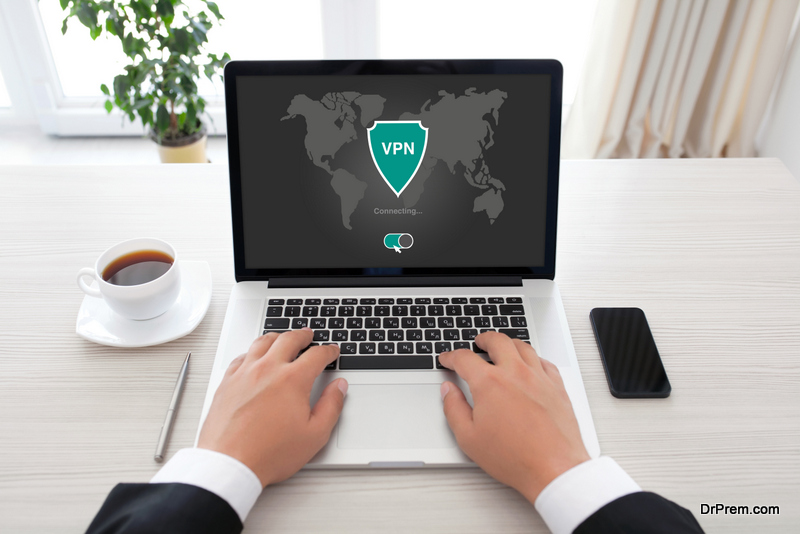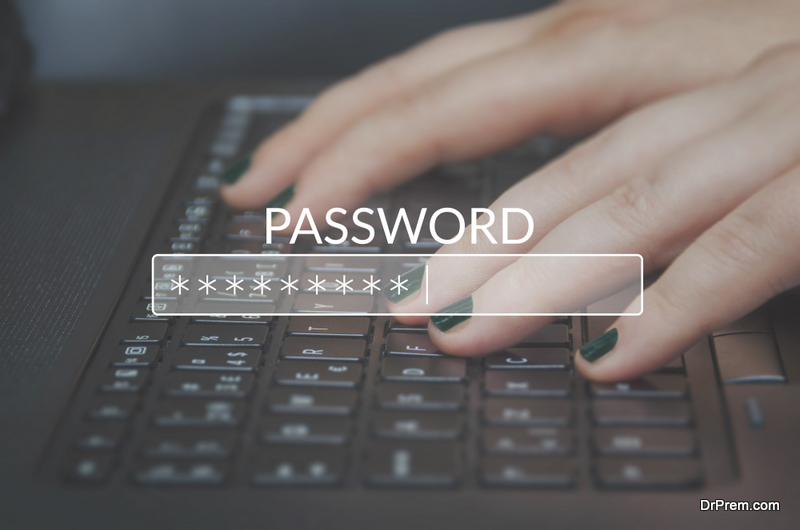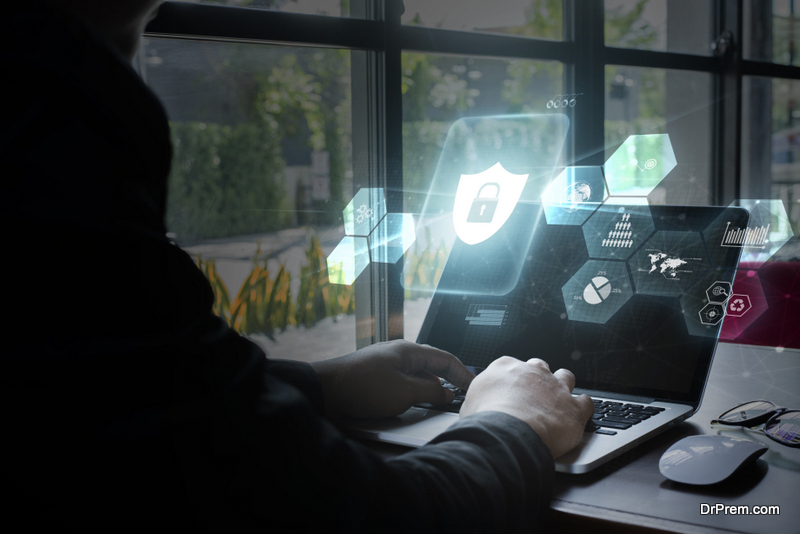Almost everyone has a Wi-Fi router at home these days. People probably ask for the password to check on their smartphone or to show you holiday photos stored in the cloud when they drop by. A lot of people will know your wireless password before long, and when they pass through your house, people can connect to your router. The signal of your router extends to nearby apartments in a building. Once the login key is exposed out, it will be very challenging to control who enters your home network. You should consider implementing certain modifications and routines to protect you from hackers and snoopers.
You generally need to tackle two significant issues; you have to control who can get into your network and you got to control the footprint of signals. People can also collect data and all your passwords if they are able to catch signals from your router. Let’s look into some important aspects of improving the security of your internet connection.
1. VPN
 AVPN (Virtual private network) allows you to maintain your private company safe and protected when surfing online. It shields your information from prying eyes by encrypting it from one end to the other. In principle, hackers may infiltrate the network but cannot damage the system if a VPN is continuously operating. The danger of getting hacked would be minimized if you’re using a reliable network at home, for instance, ultra-secure Cox internet deals make it nearly impossible for hackers to intrude. So choosing a secure internet connection always help minimize risks.
AVPN (Virtual private network) allows you to maintain your private company safe and protected when surfing online. It shields your information from prying eyes by encrypting it from one end to the other. In principle, hackers may infiltrate the network but cannot damage the system if a VPN is continuously operating. The danger of getting hacked would be minimized if you’re using a reliable network at home, for instance, ultra-secure Cox internet deals make it nearly impossible for hackers to intrude. So choosing a secure internet connection always help minimize risks.
2. Strong Encryption
While certain Wi-Fi access points still offer the old WEP security norm, this is effectively infringed. It means that hackers can access a WEP-protected network in a matter of minutes by utilizing any malware app.It is necessary to use any WPA (Wi-Fi Protected Access) version to deter intruders, either WPA or WPA2 (or WPA3 while landing).WPA may be used with a pre-shared key for smaller businesses and households. That ensures that employees or family members use the same password to communicate, and the integrity of the network relies on them if passwords are not exchanged with any other person. Therefore, it is important to make changes to the password as soon as the employee quits the job.
3. Strong WPA password
 Make sure that your Wi-Fi password is large and randomso that it can’tbe guessed by a hacker.It is all too simple to set up any device with its default settings, particularly since it is often printed in the router’s default admin name and password to allow quick access and installation. This means hackers are going to attempt and penetrate your network using these details. It will be more challenging for a suspect to crack both the username and the password when changes are made. Without exposing your password, you can use the CloudCracker program to check the protection of your WPA secure network.
Make sure that your Wi-Fi password is large and randomso that it can’tbe guessed by a hacker.It is all too simple to set up any device with its default settings, particularly since it is often printed in the router’s default admin name and password to allow quick access and installation. This means hackers are going to attempt and penetrate your network using these details. It will be more challenging for a suspect to crack both the username and the password when changes are made. Without exposing your password, you can use the CloudCracker program to check the protection of your WPA secure network.
4. A Separate Network
It would be a good idea to offer guest networks if you want to allow visitors to use your Wi-Fi. This means you can connect to the Internet without having access to the internal network of your company or family. This is important both for security reasons and to prevent viruses or other malware from inadvertently contaminating your network. A different internet connection with your wireless access point is one way to achieve this. It’s easily implemented because most business-class wireless routers can run two Wi-Fi networks at once, your main networks, and one for guests.
5. Hidden network name
 The Wi-Fi connection points for transmitting the wireless network’s name are configured by default—— making identification and connection simpler. But the SSID may also be set to “Hidden” to learn the network name in anticipation of connecting to it. As the workers will know the Wi-Fi business name (and the same extends to families and friends in a household), it does not make sense to relay the Wi-Fi network because everyone else will quickly access it. However, it must be noted that it must not be the only way to secure your Wi-Fi network to hide your SSID because hackers can still detect the network and SSID using Wi-Fi-scanning tools.
The Wi-Fi connection points for transmitting the wireless network’s name are configured by default—— making identification and connection simpler. But the SSID may also be set to “Hidden” to learn the network name in anticipation of connecting to it. As the workers will know the Wi-Fi business name (and the same extends to families and friends in a household), it does not make sense to relay the Wi-Fi network because everyone else will quickly access it. However, it must be noted that it must not be the only way to secure your Wi-Fi network to hide your SSID because hackers can still detect the network and SSID using Wi-Fi-scanning tools.
6. Firewall
The Firewall provides the most immediate protection against hackers,coming from outside the network. Most routers are usually equipped with a firewall that keeps a check on the data coming in and going out and also blocks any suspicious activity. The systems are normally set to good function through logical defaults. A firewall works by using packet filtering to check the packet header and destination address to see its source. This knowledge is linked to a series of predefined and/or user-created laws, which control the validity and the entrance of the packet.
Conclusion
While there are a lot of ways a hacker might be able to intrude into your network, you may follow the tips mentioned above to keep yourself safe.
Article Submitted By Community Writer




